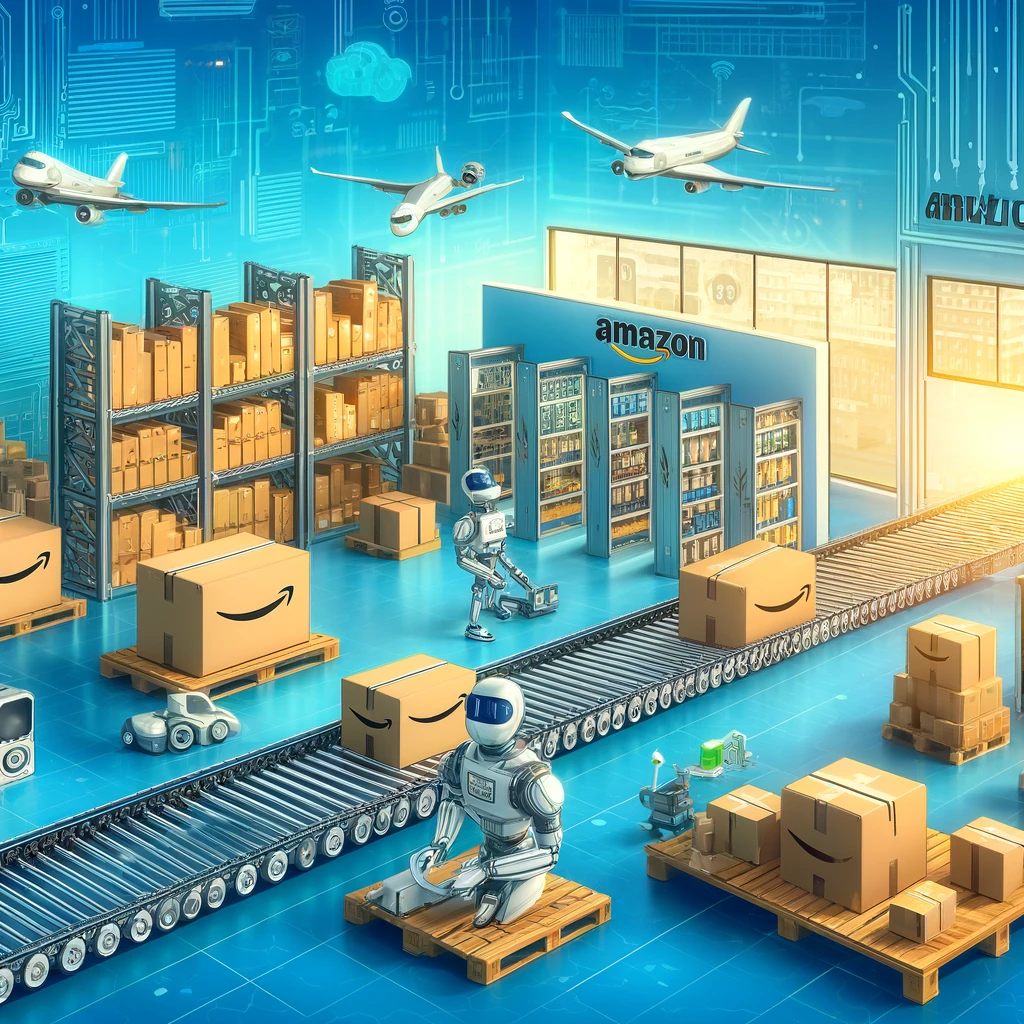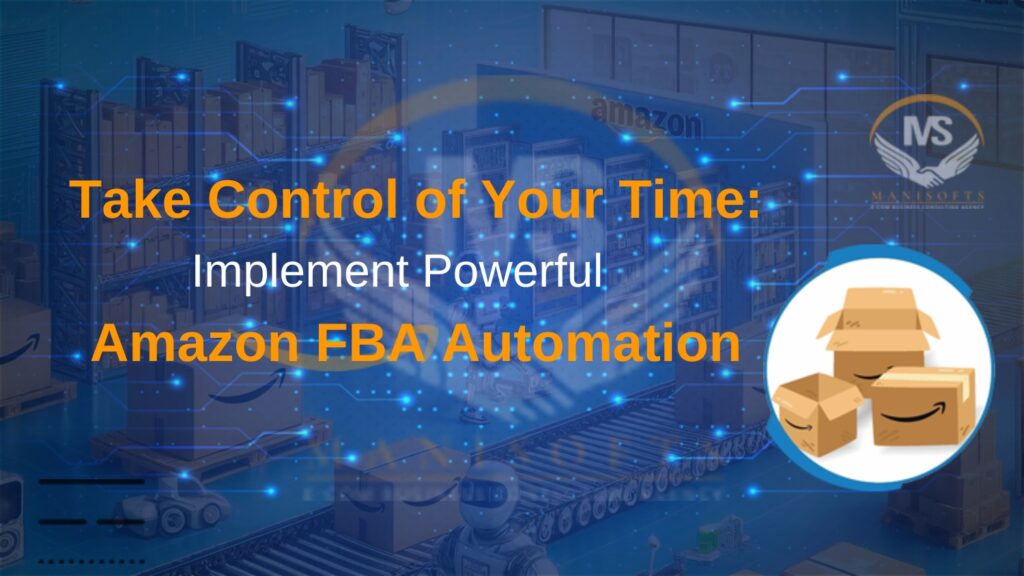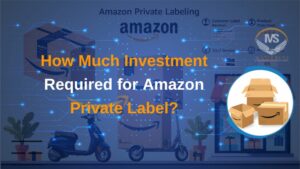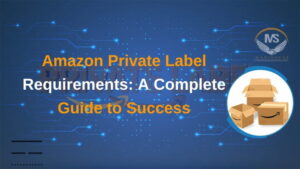Discover the benefits of Amazon FBA Automation and streamline your e-commerce business. Learn how automating tasks like inventory management, order processing, and customer service can save you time, reduce errors, and boost your profits.
Introduction
Is your Amazon FBA business ready to be unlocked? Let me introduce you to automation. It is a strong method that involves the use of software and tools for the sake of freeing up time from doing repetitive work in order for it to be spent wisely on developing strategies that bring about growth. Amazon FBA automation enables one to work smarter, not harder, by offering, among other things, easy inventory management and quick order processing. In this article we shall reveal some truths behind automatic systems while at the same time showing how these could change everything during your FBA adventure.
What is Amazon FBA Automation?
Fulfillment by Amazon (FBA) automation is the use of tools, software programs, and services to streamline different operational activities in running an FBA business on Amazon. Automating repetitive processes with Amazon automation saves time and effort that can be invested into more critical areas, including product research, marketing, or optimizing an Amazon storefront.
Inventory management software is one example of this type of tool, as it enables tracking stock levels, which in turn helps prevent overselling or going out of stock. In addition, such automation tools aid with demand planning as well as accurate forecasting, thereby ensuring profitability, sustainability, and competitiveness within the market.
The Benefits of Amazon Automation
In the e-commerce sector, it is important to run an Amazon business well. A good way of achieving this is by using Amazon automation which can help in saving time as well as streamlining operations that in turn boosts overall business productivity. Below are some reasons why introducing automation into your Amazon business is beneficial:
1. Saves Time
Time is saved when repetitive tasks such as order processing, inventory management, and customer service responses are automated, leaving you with more time to concentrate on strategic activities like product research, marketing, and expanding your product line.
2. Increased Accuracy
Human errors occur frequently during manual procedures, leading to overselling or incorrect order fulfillment due to stockouts. This risk can be lowered through the use of automation tools that perform tasks accurately and consistently, thereby minimizing the chances of mistake occurrence.
3. Efficient Inventory Management
Real-time tracking and control over inventory levels is facilitated by automation software, thus ensuring that a business does not run out of stock or overstock, which can hurt it negatively; besides, automated systems always update themselves every second based on current demand trends within specific markets, thereby enabling sellers to meet their customers’ needs promptly without unnecessary delays.
4. Better Customer Service
Quicker response times, together with improved customer satisfaction, can be achieved when automated systems handle customer inquiries, process returns, or provide timely updates on order status, leading to positive reviews and repeat business later on.
5. Precise Demand Forecasting
It becomes easier for sellers to plan inventory purchases appropriately while keeping required profit margins healthy as they manage their stock levels effectively; this happens because automation tools utilize data analytics in making accurate predictions about future demands, thereby ensuring that all client’s requirements are met.
6. Efficiency In Cost
Labor costs may reduce where repetitive tasks are automated so that resources get allocated better than before since both operational expenses will decrease alongside productivity increase at large after cutting down those hours spent doing a single task repeatedly each day manually.
7. Scalability
One beautiful thing about having an automated system is its ability to accommodate growth easily without much struggle or additional staff requirements, especially when it comes to processing large volumes of orders within a short period.
8. Competitive Edge
In order to stay ahead in this fast-moving world of ecommerce, it is necessary for any player not only to respond quickly but also optimize pricing strategies as well as keep the storefront updated with the latest product information, which can be achieved through automation.
9. Insights Driven By Data
Business performance can be tracked better if certain automation tools are used since they come equipped with analytic and reporting features that provide useful information regarding the same; these insights enable sellers to make informed choices and detect patterns or trends while continuously improving operations.
10. Serenity Of Mind
With everything running smoothly because routine tasks have been taken care of by automated systems, entrepreneurs get peace knowing their enterprises are operating at an optimal level, thereby allowing them to focus more on growth areas strategically.

You process efficiency, accuracy and scaleability into your operations when you bring automation into the way you run your Amazon business. It cannot be overemphasized that Amazon automation offers many benefits that are geared towards enhancing overall business productivity within an increasingly competitive e-commerce landscape, thus ensuring sustainable success in the long term, too.
How Amazon FBA Automation Works?
Amazon FBA (Fulfillment by Amazon) automation is a game-changer for e-commerce sellers looking to streamline their operations and maximize efficiency. Using technology and specialized tools helps simplify different parts of managing an FBA business. This is how it works:
1. Inventory Control
Effectively managing inventory is among the main purposes of automating Amazon FBA. It keeps track of levels in real-time and can notify when stock runs low and needs restocking. Additionally, it utilizes historical sales data to forecast demand, thereby ensuring that you do not overstock or run out of products.
2. Order Processing
Systems for automated order processing seamlessly handle incoming orders. When a customer places an order, the system automatically processes it, updates the inventory then sends this information to Amazon so that they can fulfill the order on your behalf. This reduces manual intervention while speeding up order fulfillment.
3. Pricing Optimization
Dynamic pricing tools adjust the prices of products depending on things like competitor pricing, market conditions as well as demand fluctuations, among others. Automation guarantees that your prices are always competitive, which makes you attract more customers, leading to increased sales volume too. These tools may also help you identify the best pricing strategies for maximum profit realization.
4. Listing Management
Updating product listings such as descriptions, images, or even prices across multiple marketplaces can be tedious, especially with a large inventory at hand. However, this should not worry any more thanks to listing management automation software, which ensures accuracy and saves time, too! You will have accurate listings at all times, thus improving the visibility of what is being sold while increasing its potential for sales success.
5. Sales Analytics & Reporting
Sales analytics reports provide comprehensive insights into different areas of your Amazon FBA business performance. Reports on sales performance, inventory turnover rate, profit margins, customer behavior, etc. By analyzing these data, you will be able to make informed decisions on how best to optimize operational efficiency, thus driving growth within the organization.
6. Customer Service Automation
Automated customer service systems handle routine inquiries, process returns, and provide order updates. Chatbots and AI-driven tools can answer common customer questions, resolve issues promptly, and even gather customer feedback. This enhances the overall customer experience and frees up your time to focus on more complex client interactions.
7. Replenishment Automation
Replenishment automation ensures that your products are consistently available for customers. The system automatically generates purchase orders when inventory levels fall below a certain threshold and then sends them to suppliers, thereby preventing stockouts, which could disrupt the smooth running of the supply chain management process.
8. Marketing Automation
Amazon is not the only platform where you can sell your products; there are other platforms too that require marketing strategies. Automation helps in running targeted ad campaigns on platforms, such as Amazon itself, so that you may get more sales from different locations, as well as optimizing ads based on performance data, thus ensuring the highest ROI possible. It also deals with email marketing campaigns, promotional offers, social media marketing, etc.
9. Feedback & Review Management
Automation tools monitor and manage customer feedback by encouraging satisfied clients to leave positive reviews while addressing negative ones promptly. This helps in maintaining a good seller rating, which boosts the credibility of your product within the Amazon FBA marketplace, among others.
10. Supply Chain Management
From supplier management all through shipping logistics, automation should be applied so as to streamline the entire supply chain procedure. Shipment tracking, relationships with suppliers, timely deliveries, etc., can easily be achieved through automated systems, hence minimizing delays along the way thus improving the efficiency of operations operations within this sector.
FBA Automation in the Global Market
Global business operations have been dramatically altered by automation through the Fulfillment by Amazon (FBA). By taking advantage of the huge Amazon fulfillment network, e-commerce firms can automate vital parts of their operation like inventory control, order handling, and customer support. This not only improves efficiency but also gives entrepreneurs more time to concentrate on expansion and planning.
Outsourcing to Freelancers:
One way to automate FBA is through subcontracting different jobs to independent contractors. Here are some reasons why this strategy is good:
- Cheapness: It may be cheaper to pay freelancers than it would cost to employ full-time staff members. Normally, freelance workers are paid according to projects or assignments, which means that a big margin can reduce overhead expenses.
- Elasticity: Independent contractors provide an opportunity to upsize or downsize as required by the business at any given time. This ensures efficient management of workloads without having permanent employees who might not be needed for long periods.
- Access To Skills: Outsourcing particular duties exposes them to internationally diverse talents and skills; individuals who possess such expertise may not be found within one organization. Consequently, operations become more effective, thereby producing better outcomes.
- Concentrate On The Main Tasks: When you assign monotonous or time-consuming duties elsewhere, like with freelancer(s); it enables you to give undivided attention to core functions of the enterprise, e.g., coming up with strategies, marketing products/services, and engaging customers, amongst others.
Opting for a Virtual Assistant:
Alternate methods for optimizing FBA automation include hiring virtual assistants. VAs with experience can multi-task, thus ensuring the smooth running and efficiency of your business. Here are some of its benefits:
- Managing routine tasks: Processing orders, updating inventories, and responding to customers’ inquiries on a daily basis are some of the things that VAs may do. This helps keep operational consistency while freeing one up for more important duties.
- Financial management: Skilled VAs can also take care of financial statements as well as bookkeeping, among other money-related tasks, which ensures accuracy in record keeping and keeping track of business finances.
- Time-saving: When you delegate work to a virtual assistant, you end up saving much time that can be used for strategic planning or developing the business further.
- Increased productivity: Since these people work remotely from different time zones, they could provide round-the-clock support, hence keeping your business running without interruption. This might lead to increased productivity due to a shorter turnaround time.
Implementing FBA Automation with Freelancers and Virtual Assistants
If you want to automate FBA and profit from outsourcing as well as VAs, take the following steps:
- Recognize Key Assignments: Define which duties can be automated or sent out. These may include inventory control, order processing, customer service, and financial management.
- Choose Suitable Freelancers and VAs: Go for freelancers and VAs that have appropriate qualifications and experience. Look for qualified professionals through Upwork, Fiverr or other platforms specializing in VA.
- Integrate Tools for Automation: Employ automation tools compatible with Amazon’s FBA system. For instance, get software designed for financial tracking, order processing, and inventory management, among others.
- Give Clear Instructions: Ensure all your freelancers and VAs have clear instructions along with all resources needed. Communicating well while giving detailed instructions is vital if you are to succeed in outsourcing.
- Monitor & Evaluate: Regularly assess how your freelancers and VAs are performing. Track key indicators such as accuracy rate, task completion rate, overall efficiency, etc., while providing feedback where necessary + making adjustments whenever required.
FAQ’s
Yes, Amazon FBA can be very lucrative. There have been sellers who make more than $1,000 per month and have lots of potential for income. But this depends on other things apart from sales numbers being right.
So, how much does it cost to start selling on Amazon? According to our cost and fee breakdown, sellers should expect a range between $2,790 – $3,940 for starting a private label business using Amazon FBA, including required costs ($650), recommended expenses, and additional costs ($500).
Amazon Automation means that all the operational parts of an Amazon business are outsourced to a third-party service provider. This approach is also called “Done For You” service or full-service agency management, where most business activities are delegated to an external party.
Yes, anyone looking to increase their monthly earnings or achieve financial freedom must consider doing Amazon FBA in 2024. Setting up an Amazon business has never been easier, with many online resources and how-to guides available.
What is Amazon FB, and why is it better than FB? Well, high volume, high margin products are suited by FBA because sellers do not deal with storage nor shipping, while FBM suits smaller scale low margin products or one-offs where the seller is willing to handle storage and shipping themselves.
Conclusion
The process of managing an Amazon FBA Business becomes much simpler through automation, which allows sellers to scale their operations and maximize profits easily. Time spent on such tasks as inventory management and order processing customer service can be saved by automating them, thereby reducing errors made hence increasing efficiency, thus leading to customer satisfaction, too. Also, sellers who use these tools/strategies get a chance to concentrate on growth as well as make strategic decisions for their success in the competitive e-commerce landscape when implementing amazon for automation.




